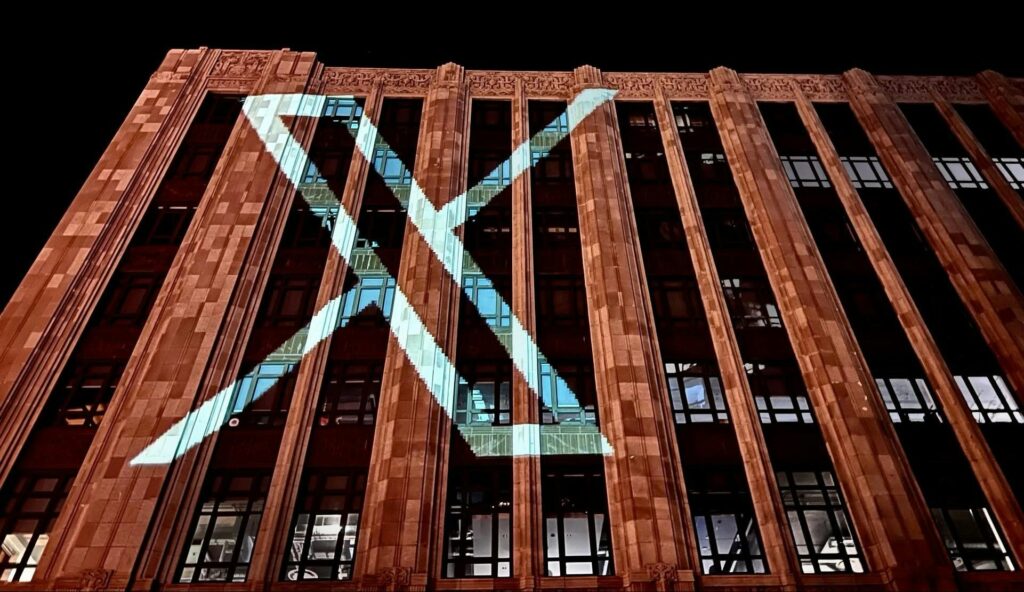X experienced a “significant decrease” in performance in 2023, as spend fell from large brand advertisers concerned about content moderation and brand safety.

X’s UK business experienced a “significant decrease” in performance in 2023, following Elon Musk’s purchase of the company in late 2022, the company has revealed.
Revenue fell by 66.3% year-on-year, dropping from £205.3m in 2022 to £69.1m in 2023, while profit for the financial year decreased to £1.2m from £5.6m.
The downturn was triggered by a reduction in advertising spend from large brand advertisers concerned about content moderation and brand safety, according to accounts filed this week with Companies House, for the year ending 31 December 2023.
The number of UK employees in sales and marketing fell from 152 in 2022 to 59 in 2023, while total UK headcount was cut by more than two-thirds from 399 to 114 in 2023, reducing the total wage bill from £84.1m to just £11.4m.
Since Musk’s takeover, concerns have stemmed from changes in content moderation, particularly regarding the reinstatement of previously banned users and the display of potentially harmful content.
X lost a significant number of its top advertisers following the acquisition. When Musk first acquired X in October, WPP-owned media agency GroupM declared it was “high risk” for advertisers to continue using the platform, for example.
Major brands including Coca-Cola, Unilever and Mondelez International pulled back from the platform, with 625 of its top 1,000 advertisers reportedly cutting spend on the platform between October 2022 and January 2023, according to data from Pathmatics by Sensor Tower published by CNN.
The Global Alliance for Responsible Media (GARM), a brand safety initiative from the WFA, was also suspended in August 2024 after Musk and X CEO Linda Yaccarino announced an antitrust lawsuit against the non-profit coalition and its members.
The lawsuit alleged GARM and its members had violated US competition law by creating an “illegal boycott” via coordinating with brands to “withhold billions of dollars” in ad revenue on the social media platform. Brands being sued included Unilever, Mars and CVS Health.
Since then the social media platform’s value has reportedly rebounded to $44bn (£33.16bn) – the price Musk paid for it – according to a report from The Financial Times last month.
Push to diversify
Elsewhere in the Companies House filing, X recognised the size of its user base, level of engagement and number of ad engagements are “critical” to the success of the company.
In 2023, the bulk of X’s income came from third-party advertising, specifically, promoted products such as app ads, website clicks and conversions.
To sustain and increase revenue, X said it must add new advertisers and encourage existing ones to increase the amount of inventory purchased, while driving adoption of new platform features.
The business focused investment on features and formats that “differentiate X”, citing videos and more organic ad formats, as well as “lower funnel ad products” focused on driving conversion.
X said it is now “diversifying” its revenue streams by targeting SMEs and ramping up its performance advertising offerings. The company pointed to the development of new ad solutions and a “refreshed” sales go-to-market strategy.
In 2023, confidence in X plummeted, with just 4% of marketers believing ads on the platform provide brand safety, according to Kantar’s 2024 Media Reactions report. Indeed, trust in X nosedived from 22% in 2022 to 12% in 2024, the data found.
As a result, a net 26% of marketers said they plan to cut ad spend on X this year – the largest recorded pullback seen on any major global ad platform – citing brand safety concerns, alongside poor perceptions of innovation and trust.
